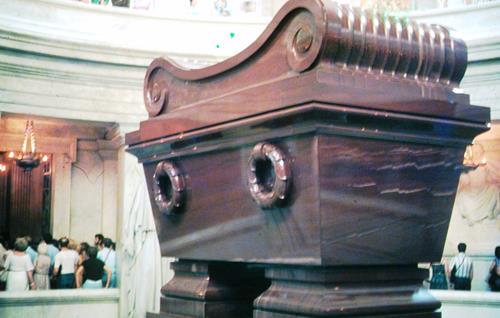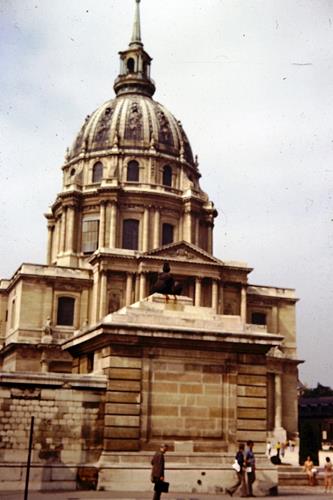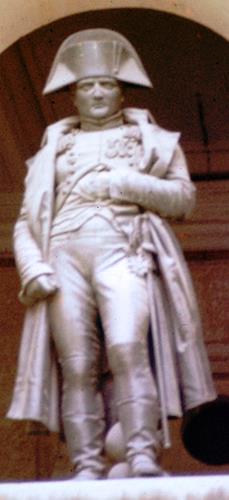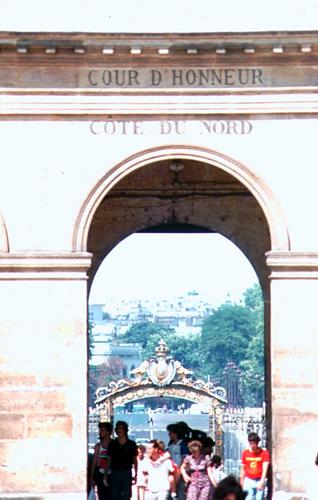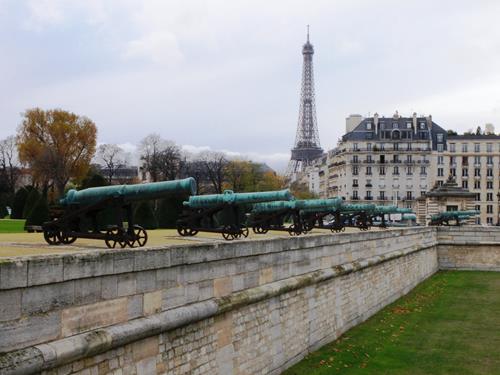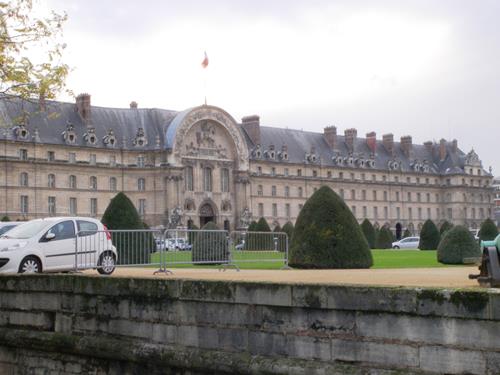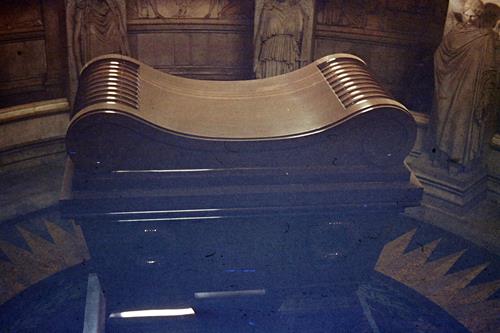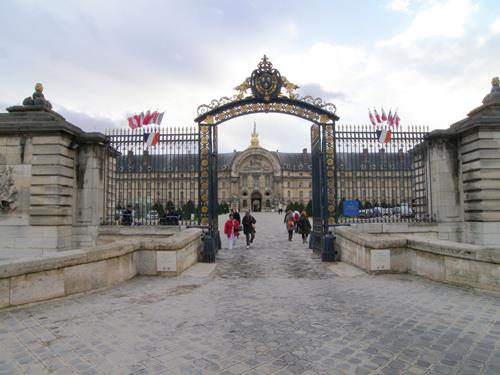
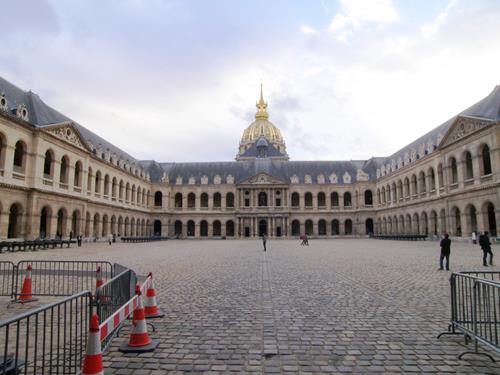
Hôtel des Invalides
The HÔTEL NATIONAL DES
INVALIDES was built as a barracks for 7,000 men - mostly old wounded soldiers -
in the reign of Louis XIV.
It now houses about 100 old
codgers, part of the Army Headquarters, and an enormous Military Museum.
The main courtyard, lined with
old guns under a grand arcade, is overlooked by the most famous statue of
Napoleon,
the one known
as ‘Le Petit Caporal’ – enormous hat, brooding expression, hand on wallet.
The Museum, which
occupies most of the left-hand side of the building, spreads over several
floors,
and traces the
French Army from the Middle Ages to Vietnam.
Don’t miss the top floor, Le Musée des Plans-reliefs,
where there are vast three-dimensional models of fortified towns and
battlefields.
Observe,
too, a strange anomaly. Young people in full-time education are entitled to free
entry to all Museums belonging to the state;
but Les Invalides belongs to the Army, so you have to
pay.
In the centre of Les Invalides you will find two
churches, back-to-back; St. Louis’ and the Dome.
Captured flags hang in St. Louis’; there used to be
thousands more, but they were burned to prevent their recapture in 1814.
Under the Dome, in a crypt specially dug and taking up
nearly all the floor space, lie the remains of Napoleon I,
brought back from St. Helena
in 1840. The body is in a tin coffin inside an iron coffin in a mahogany coffin
in a lead coffin in
another lead coffin in an ebony coffin in an oak coffin in a five-ton red
porphyry sarcophagus on a green granite base.
That lot ought to hold the little blighter down.
Around him are the tombs of his son and the Marshals of France.
The other great claim to fame
of Les Invalides is that the French Revolution started here, because it was here
that the mob came to steal weapons for the storming of the Bastille.


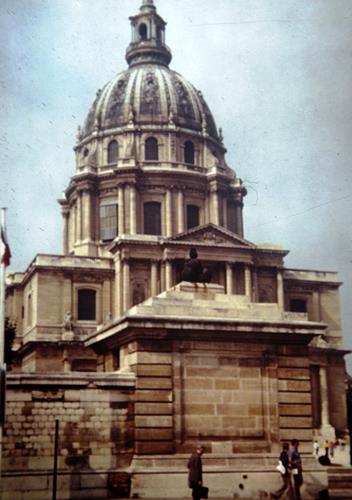
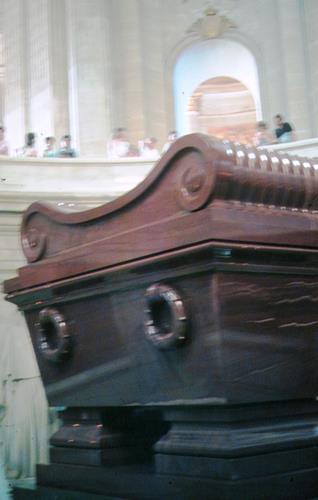
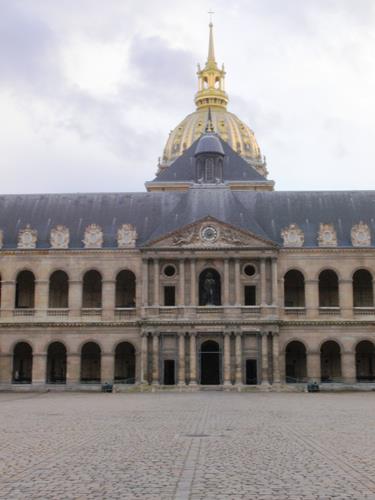
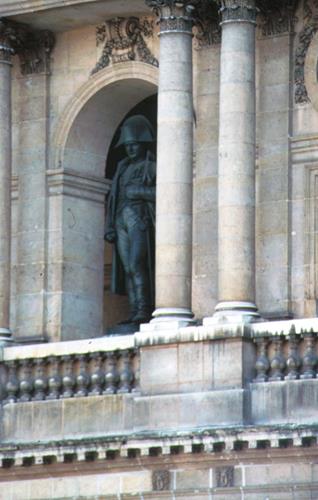
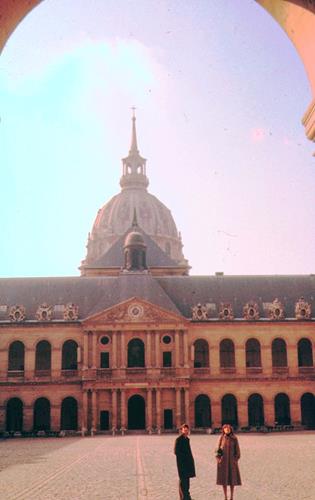
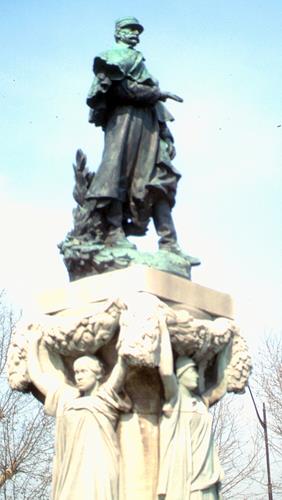
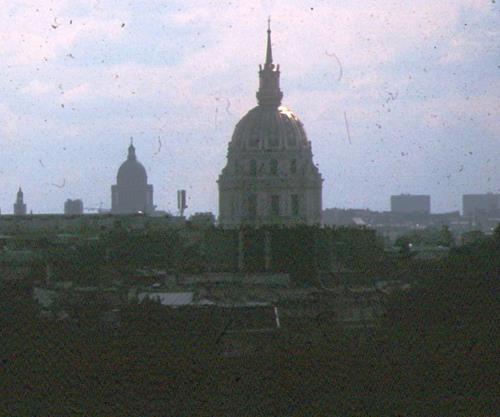
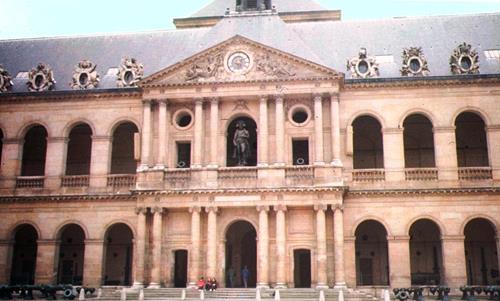
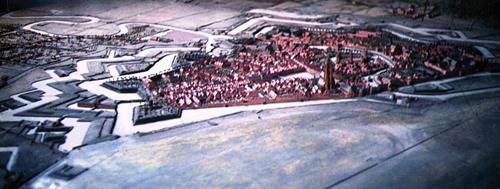
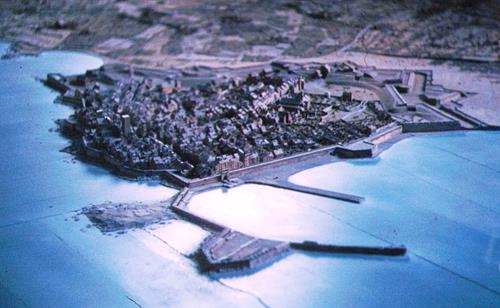
.jpg)
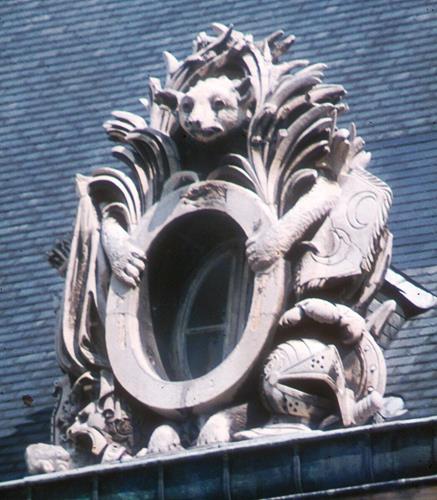
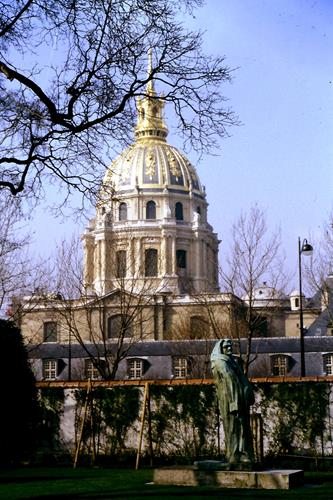
.jpg)
